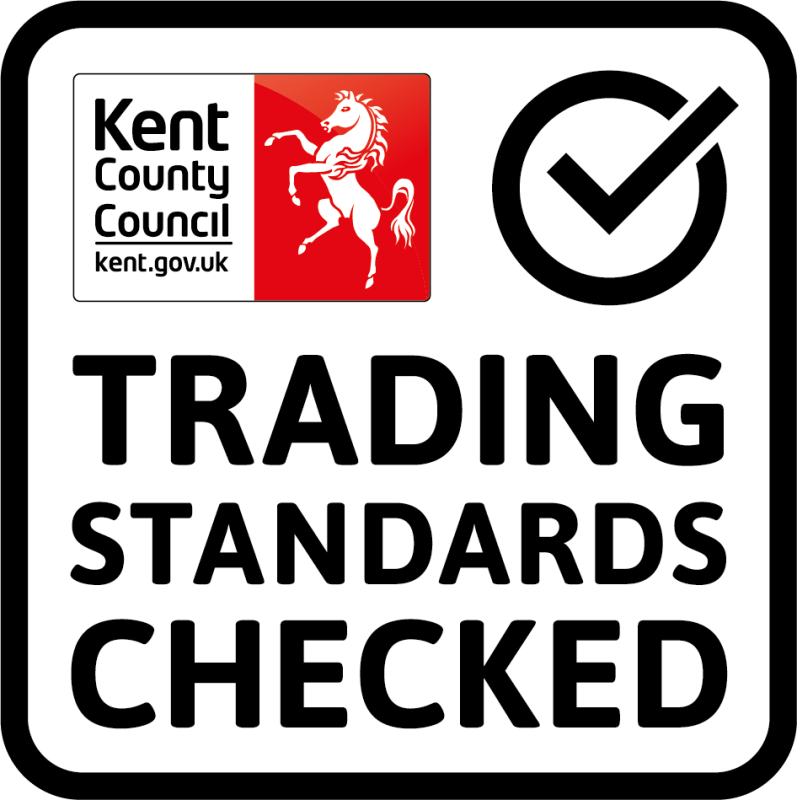
Vulnerable residents
Trading Standards Checked businesses have a responsibility to protect residents and be aware of their duty to residents, particularly vulnerable residents of Kent, when working in their home.
Types of vulnerability
Vulnerability should always be assessed on a case-by-case basis. It is important to remember everyone can be vulnerable, and vulnerability is dynamic. Vulnerability may be caused by personal circumstances and it can also be caused by businesses making confusing offers or not providing clear information.
Below are some examples of the situations that can make people vulnerable.
-
Timing and nature of the purchase or decision
-
Level of knowledge
-
Cognitive impairment
-
Low income
-
Loneliness or isolation
-
Bereavement
-
Divorce
-
Ill health
-
Physical or mental disibility
Other causes of vulnerability
Vulnerability can also be caused by confusing and complex offers or unclear information provided by businesses. People could be vulnerable if they haven’t used a service for some time, or ever before.
Vulnerability can be caused by the way people are expected to contact or communicate with a business. Sometimes lack of experience using technology can make people vulnerable.
Here are some transactions that may make a person vulnerable:
Switching gas or electricity providers
Switching bank accounts
Buying an electric car
Buying a funeral plan
Investing in cryptocurrency
Buying a first car or home
Choosing a care home for an elderly relative
Identifying vulnerability
These things may indicate that someone is vulnerable.
Health
Any long-term disability, impairment, illness or age-related conditions, and additional needs.
Major life events such as bereavement, redundancy, retirement, loss of income, divorce or a relationship breakdown.
Resilience
Someone maybe in shock from a recent financial loss, maybe due to a scam or criminal trader.
They may lack of support from family and friends.
They may feel dis-empowered.
Capability
Lack of knowledge or little confidence relating to finance and budgeting.
Lack of digital skills which can lead to low confidence in managing money.
English as a second language.
Special educational needs.
Supporting vulnerable consumers
If a consumer shows any of these signs, it may be an indication they are vulnerable.
You can take extra steps to support them, although you should act responsibly towards every consumer.
For example:
Consider communication preferences
Don’t make assumptions about the consumer
Ask the consumer what they need and how you can help them better
Ask questions in a different way if necessary
Summarise verbally and in writing what has been agreed, use plain English.
You could consider a simplified contract for the elderly and vulnerable i.e. larger print, highlight important sections, be clear on start and finish times etc.
Ask the customer if they would like a friend or family member present when you visit. If the customer refuses, make a note that you asked and ask them to sign to indicate they are happy to go ahead.
If your staff have any concerns about a vulnerable customer ensure they know how to report it. You may wish to assign a designated person to that customer.
Things to consider
Inclusive design
This means making sure your business is designed to be accessible to, and usable by, as many people as possible.
Communication
Finding the right communication channel for people with different needs is key. People with mental health problems may prefer electronic means of communication, as they can create less anxiety than telephone, face-to-face or letter interactions. Older people may prefer a letter, face-to-face discussion or a phone call. It is helpful if you offer as many different channels of communication as you can so your customers can choose.
Training
Train your staff to understand the nature and scale of vulnerability that exists in your target market.
Embed the fair treatment of vulnerable people across the business. All staff should understand how their role affects the fair treatment of vulnerable people.
Ensure staff have the necessary skills and capability to recognise and react to a range of vulnerabilities.
Provide support to staff to build resilience and have a safe space to offload if they have been supporting vulnerable consumers. This can be emotionally difficult for them as well.
Consider training staff on what to look out for. This could include, for example, the Dementia Friends training or the Friends Against Scams training. It may also be worth considering training on mental health awareness.
Report a trader
Report a criminal or rogue trader to Trading Standards by contacting our partner agency, Citizens Advice consumer helpline.
Free online business resources
Business Companion provides information for businesses and individuals that need to know about trading standards and consumer protection legislation. To view the full guidance on consumer vulnerability click here
